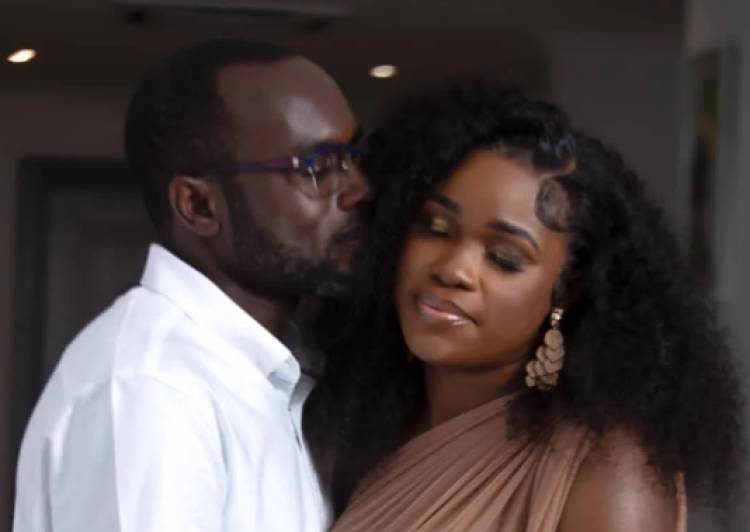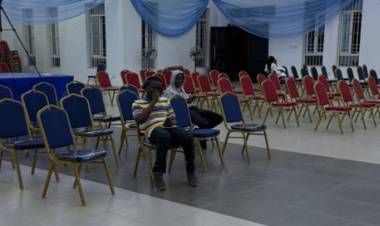The What Vs. The Why
Kathryn Khulman told the story of how she would watch her mother do the laundry painstakingly every Saturday morning when she was twelve years old. She said her mother was a hardworking housewife who had to cook, do the dishes, do the laundry, and every other household chore, while her father was a very hardworking man who worked from sunup till sundown to ensure that the family had enough to eat and pay the bills.
One Saturday morning, her mother had stacked up laundry as usual, preparing to wash it when they heard a knock at the door. Upon opening the door, there was a messenger with information about a sick relative who had been admitted to a hospital in the city and needed some level of care.
This means her mother had to abandon the task at hand and switch to preparing apple pie and other meals to take to the hospital for the sick relative.
She said she assisted her mother in the kitchen as much as she could until she left for the hospital
The moment her mother left the house for the hospital, a thought struck her mind.
“Will my mummy have to come back to do all the laundry after working so hard, cooking, and going all the way to the hospital to visit a relative? Wouldn’t that be too much stress for one woman? My mummy would need to rest when she comes back; she does not need more work. Maybe I should help her do the laundry so that when she comes, she can just rest her legs and sleep.”
Convinced that she could be of help in her own little way, Kathryn said, she took it upon herself to do the laundry.
It was not as easy as she had imagined.
She was at it all day until her mother returned from the hospital that evening.
She said that when her mother saw what she had done, her mother hugged her and thanked her profusely.
She said she was so tired from doing the laundry that she was barely able to eat dinner before sleeping off.
Later that night, she woke up to hear her mother crying on the sofa while her father gently held her on the sofa and consoled her
She said she thought something terrible had happened, something like the death of the relative her mother went to visit at the hospital.
So she listened intently to her parents’ conversation and realised her mother was weeping because the entire laundry had been ruined.
She didn’t sort the clothes and wash them according to their materials and colours as her mother would have done. She lumped everything together, soaked and washed them as best as she could, and some of the clothes with poor dye had bled into other clothes and ruined every item of clothing.
She said her mother never said a word to her about it, and neither did her father.
She saw how ruined the clothes on the lines were and went to her mother to apologise
She said her mother’s words to her were “Bless your heart, my baby, you cared and were only trying to do the right thing.”
The story taught me a lot about how to judge human actions fairly.
The Bible said, “Cain offered his grains unto the Lord, but his offering was not accepted. Abel offered his offering unto the Lord, and it was accepted. Cain got angry at his brother for being accepted while he was not. He began to fume and rage in his house. God came to him and said, “Cain, what are you doing? The raging and fuming you are engaging in can only lead you down the wrong path. You will end up making the wrong decision borne of erratic emotion; sin is crouching at your door. Let this matter rest.”
Cain didn’t.
Cain then planned how to kill his brother
He knew his brother always took a route to the fields with his animals daily
He went to lie in wait for his brother and then struck him on the head until he died on the same route.”
This was murder (Genesis 4:1-16)
The Bible said the Soldiers of Israel under the leadership of their General, Abner, and the Soldiers of Judah under the leadership of their General Joab engaged in a fierce battle. The battle started out as a competition of sorts, but things got out of hand at some point. Joab’s young cousin, Asahel, decided to take on the General of Israel’s Army head-on.
Asahel was young and inexperienced in the art of warfare
Abner was a very experienced warrior who had seen many battles
It was an uneven match
Asahel had speed and youth on his side, but Joab had experience and skill on his side
On several occasions, Abner told Asahel to turn back and find another soldier to engage or return home
Asahel, however, felt the warning was because Joab was afraid of him, so he kept on pursuing Abner
When Abner realised he would have to engage Asahel in order to survive, he did so and killed Asahel
There were many witnesses who saw what happened.
This was self-defense. (Full Story in 2 Samuel 2)
David slept with Uriah’s wife, got her pregnant, and then wrote a letter instructing Joab to put Uriah in the battle front (Murder)
Abner met with David to negotiate a surrender of the Israeli Army
Joab arrived at David’s camp and was told Abner had negotiated a surrender and had just left the camp
Joab rode after Abner and lied to him that David sent him to deliver a message to Abner in Secret
Abner followed him to a secret place, and Joab struck him with a knife (Murder)
In all the instances cited above, someone killed someone, but it was the motive that determined whether it was murder or self-defence.
It is always the motive that must be judged, regardless of the action or inaction.
We judge actions, too, because they have consequences.
A mindless behaviour like driving while drunk is judged because of the harm such an action could do to others, regardless of whether the drunk person wanted to kill or was just driving home.
Not locking the gates of the city out of nonchalance will be judged if thieves or enemies invade the city because someone didn’t do his or her duty.
A spouse not sleeping with the better half because he or she wanted to punish him or her, and a spouse not sleeping with the better half because he or she didn’t want to contract an STD, cannot be judged the same way.
Motive is always key.
“Why” is always more important than “What”.
It is the “What” that always leads to the investigation of the “Why”.
PS: Today, we celebrate Pastor Sunday Alabi and his Precious Wife, Prophetess Kofoworola Alabi, on the occasion of their tenth wedding anniversary.
I have tasted some fine wines, said Aramis
I have eaten some of the best Olives, said D’artagnan
I have loved the most beautiful of maidens, said Porthos
None of you has truly lived until you meet the one who completes your soul, said Athos
Sunday and Kofoworola Alabi are a kingdom couple doing great things for the furtherance of the Kingdom of God in simple ways
They demonstrate to the church the gift of love and marriage
Not only as models but also as guiding lights
I remember a debate I once had with my brother
It was centered around intent and optics
He chose optics, and I chose intent
He argued that how things look is very important
I argued that how things are is of more importance
So today, as he celebrates with his beautiful wife, I decided to push my argument further with this piece
I never miss out on any opportunity to start a fire
I love you, brother, I love your home, and I love your heart
I miss our debates, but I understand that the season for that is long gone
Please enjoy the wife of your youth and delight in each other
I pray for you daily.
With Love,
-GSW-
















Comments (0)
Facebook Comments (0)